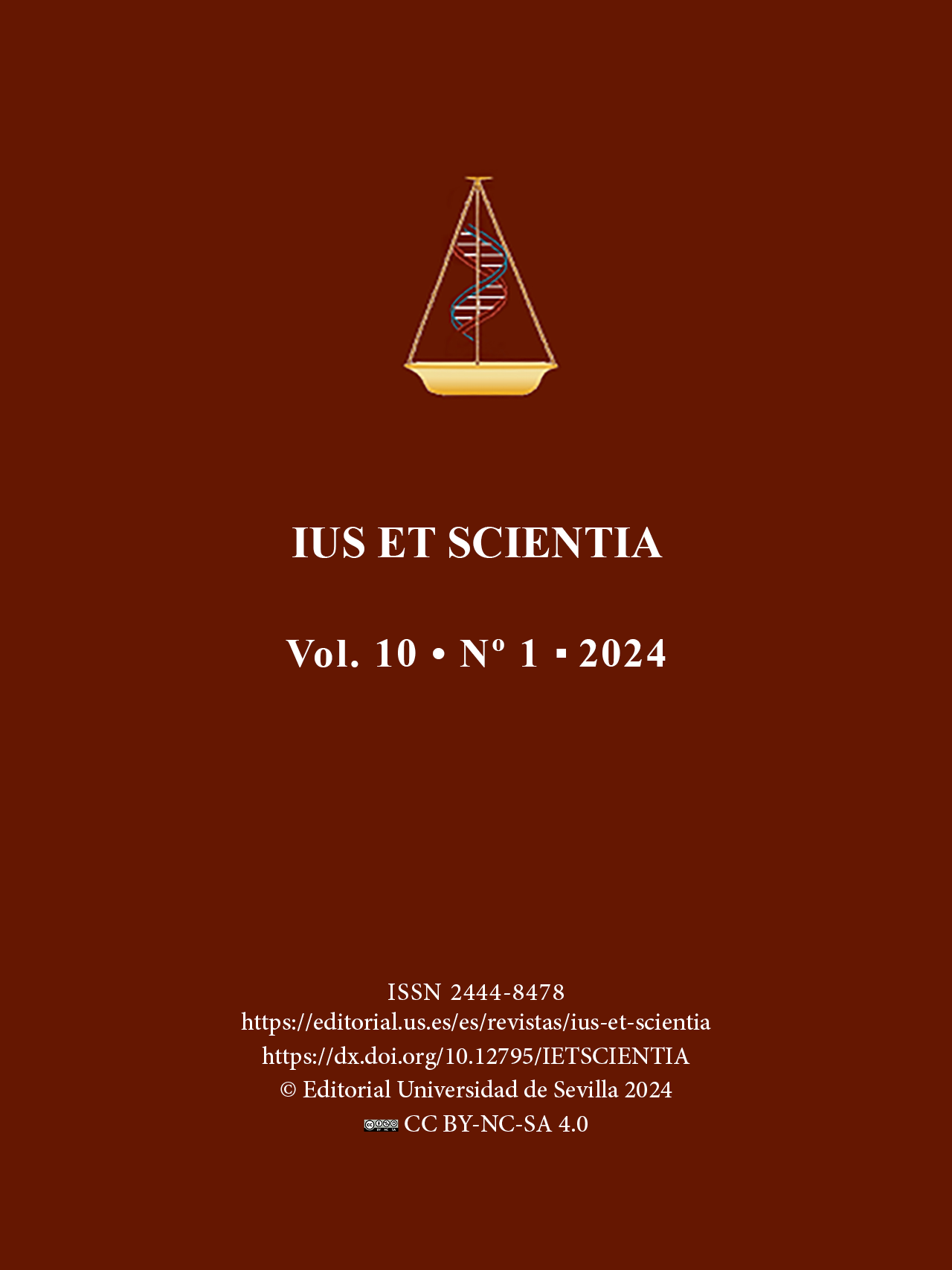Notes on the regulation of ODR in consumer affairs
DOI:
https://doi.org/10.12795/IESTSCIENTIA.2024.i01.06Keywords:
Online Dispute Resolution, Procedural Guarantees, Equality, Disruptive Technologies, Privatization of JusticeAbstract
This article critically analyzes the widespread use of so-called Online Dispute Resolution (ODR) in the procedural field for dispute resolution, especially in consumer matters. It explores how these methods, although promoted as efficient and accessible, may undermine fundamental principles governing the process, such as equality, legality and objective disinterestedness, as well as other principles typical of self-compositive means of dispute resolution, such as voluntariness. From a procedural and human rights perspective, the impact of ODR on equal access to justice and the protection of individual rights is questioned. In addition, it examines the risks associated with the privatization of dispute resolution and the lack of adequate oversight and regulation in this area. This article seeks to generate reflection on the ethical and social implications of ODR and to promote a debate on the balance between efficiency and fairness in dispute resolution in the digital age.
Downloads
References
BARONA VILAR, S. (2018). Nociones y principios de las ADR. Valencia: Tirant lo Blanch.
BARONA VILAR, S. (2021). Algoritmización del derecho y de la justicia : de la Inteligencia Artificial a la Smart Justice. Valencia: Tirant lo Blanch.
BLACIO AGUIRRE, G. S. (2018). «Administrar Justicia con Inteligencia Artificial». . Revista Dilemas Contemporáneos. , 1-22.
BONACHERA VILLEGAS, R. (14009/2023). Pasado, presente y futuro de los modelos de ODR: un enfoque internacional y europeo. La Ley Digital, 1-22.
CATALÁN CHAMORRO, M. (2019). El acceso a la justicia de consumidores : los nuevos instrumentos del ADR y ODR de consumo. Valencia: Tirant lo Blanch.
CEPEDA ESPINOSA, M. J. (2020). Modernización de la administración de justicia a través de la inteligencia artificial. . Bogotá: Fedesarrollo.
ELISAVETSKY, A., & MARÚN, M. (2020). La tecnología aplicada a la resolución de conflictos. Su comprensión para la eficiencia de las ODR y para su proyección en Latinoamérica. Revista Brasileira de Alternative Dispute Resolution–RBADR, 51-69.
OSNA, G. (2019). Acceso a la justicia, cultura y online dispute resolution. Derecho PUCP, 9-27.
PAGE, J., & BONNYMAN, L. (2016). ADR and ODR—achieving better dispute resolution for consumers in the EU. ERA Forum(17), pp. 145-160.
RUGGERI, L. (10 de 2010). ADR y ODR y su taxonomía. La identificación de caracteres. IDP. Revista de Internet, Derecho y Política, págs. 32-41.
SCIALLIS, E. (2020). ODR and access to justice for vulnerable consumers: The case of the EU ODR Platform. (Routledge, Ed.) Vulnerable Consumers and the Law,, 177-192.
SUÁREZ XAVIER, P. R. (2020). Gobernanza, Inteligencia Artificial y Justicia Predictiva: Los retos de la Administración de Justicia ante la Sociedad en Red. Málaga: RIUMA.
SUÁREZ XAVIER, P. R. (2023). Justicia Predictiva: construyendo la justicia del Siglo XXI. Aranzadi/Civitas.
TORRES OSORIO, E. (2013). La mediación a la luz de la tutela judicial efectiva. . Salamanca: Universidad de Salamanca.
VALBUENA GONZÁLEZ, F. (2015). La plataforma europea de resolución de litigios en línea (ODR) en materia de consumo. Revista de Derecho Comunitario Europeo(52), págs. 987-1016.
VARREGOSO MESQUITA, L. (2019). «E-Justice, Consumo e Litígios Transfronteiriços – Procedimentos Europeus de Segunda Geração». Direito em Dia.
Published
How to Cite
Issue
Section
License
Copyright (c) 2024 Paulo Ramon Suárez Xavier

This work is licensed under a Creative Commons Attribution-NonCommercial-ShareAlike 4.0 International License.
Those authors being published in this journal agree to the following terms:
- Authors retain their copyright and they will guarantee to the journal the right of first publication of their work, which will be simultaneously subject to license recognition by Creative Commons that allows others to share such work provided it is stated the author’s name and his first publishing in IUS ET SCIENTIA.
- Authors may take other non-exclusive distribution license agreements version of the published work (e.g. deposit in an institutional digital file or publish it in a monographic volume) provided it is stated the initial publication in this journal.
- It is allowed and encouraged that Author s disseminate their work via the Internet (e. g. institutional digital files or on their website) prior to and during the submission process, which can lead to interesting exchanges and to increase citation of the published work.
- Abstract 82
- PDF (Español (España)) 56
- HTML (Español (España)) 81





